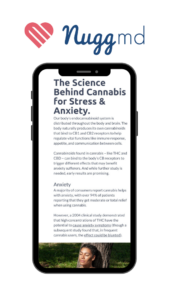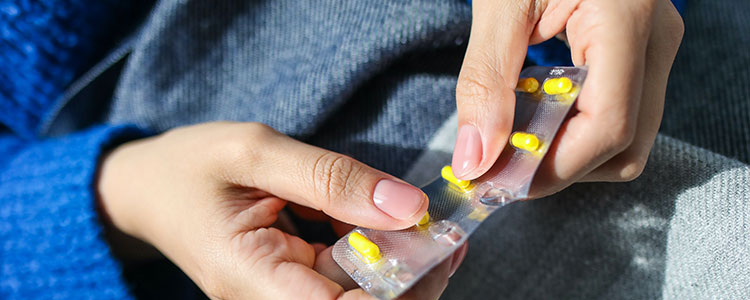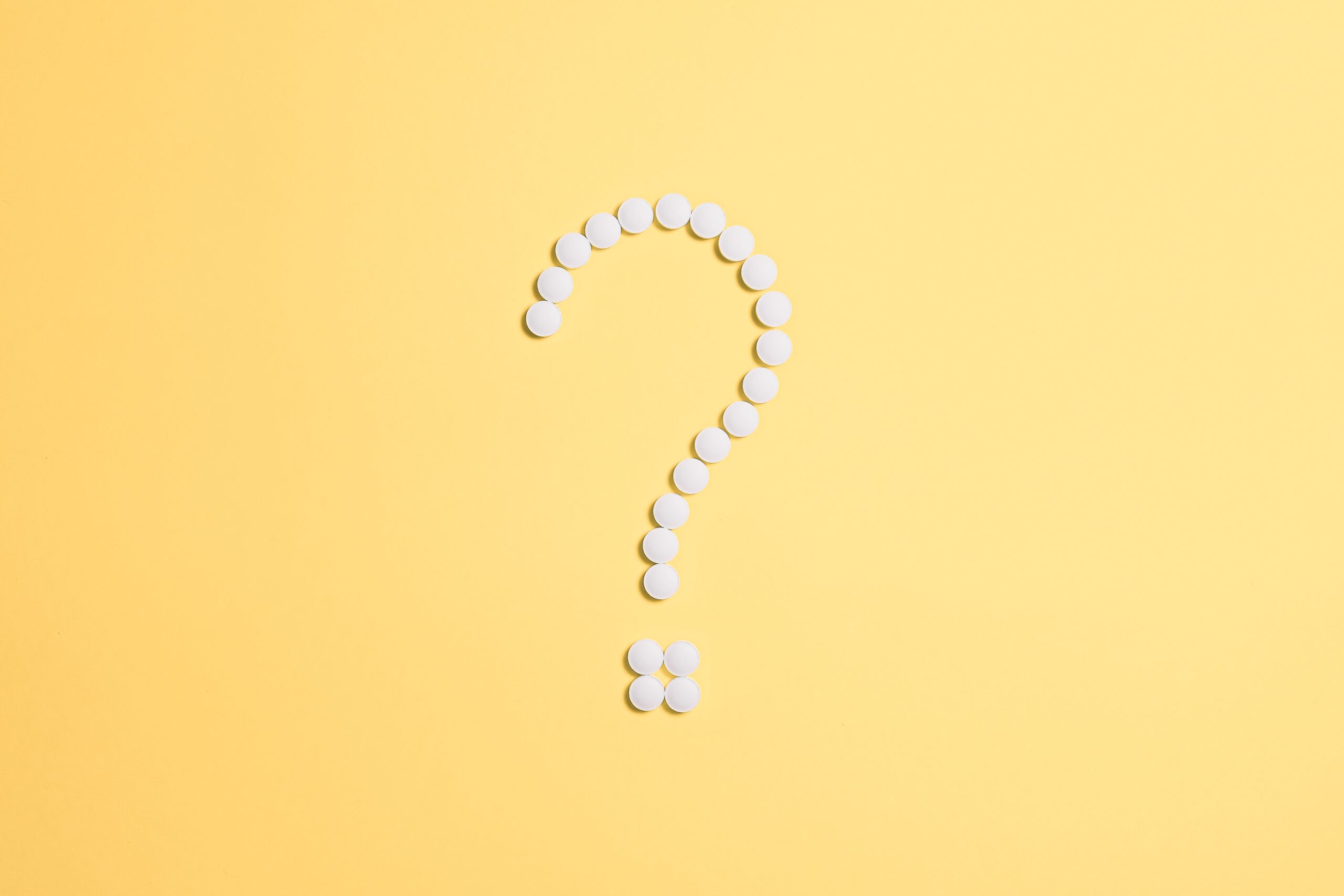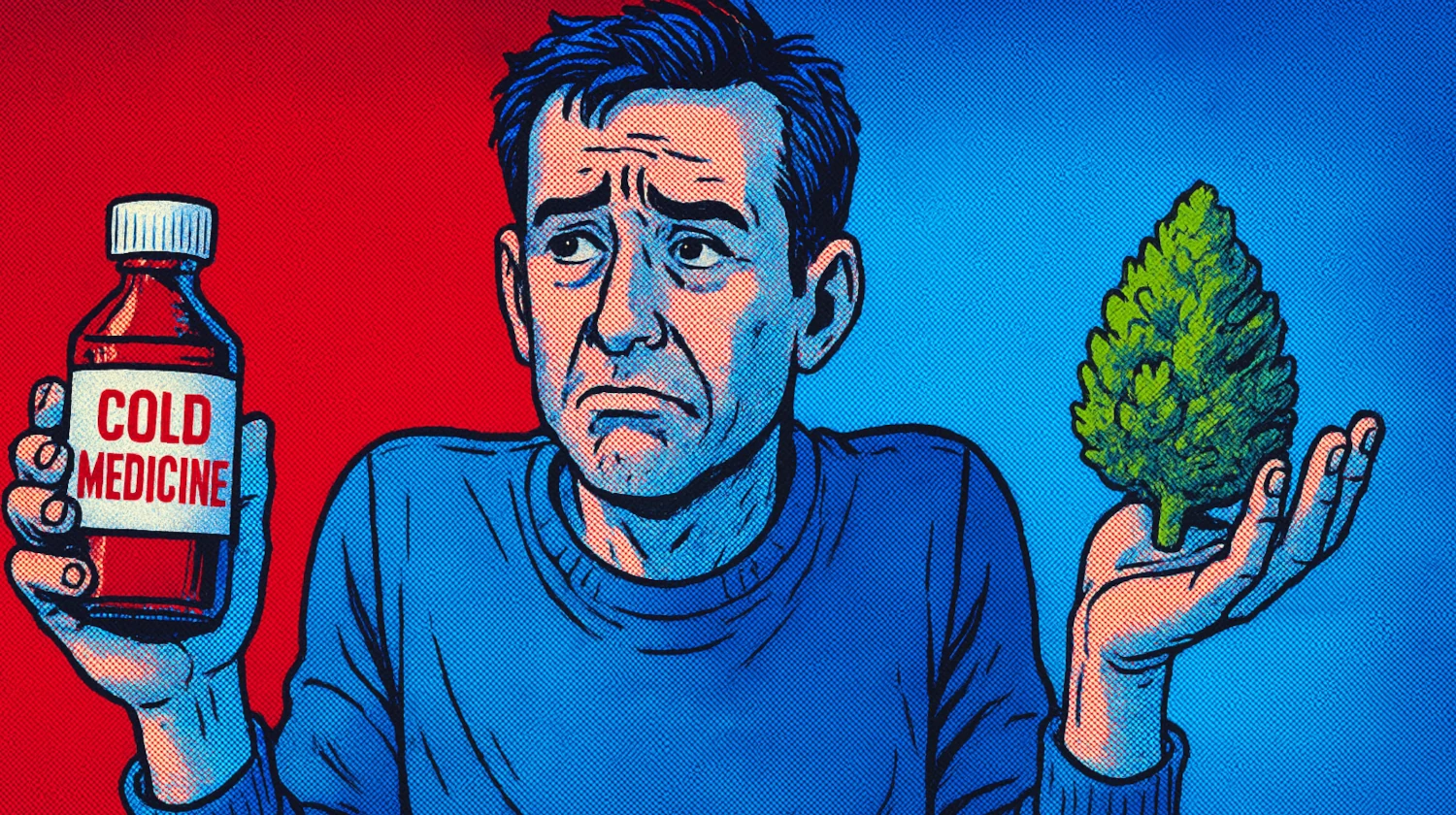Cannabis and gabapentin are sometimes used for similar symptoms. While some individuals use cannabis to help manage pain or anxiety, it may also interact with medications like gabapentin, which is prescribed for nerve pain, seizures, and other conditions.
There isn’t much research yet on how cannabis and gabapentin affect each other. Because both substances act on the brain and nervous system, it’s important to speak with a doctor before using them together. This article looks at what researchers currently know, and what questions remain.

Find natural, lasting relief with our comprehensive (and completely free) patient’s guide to medical cannabis for stress and anxiety.
What is Gabapentin?
Gabapentin is a prescription medication that targets and reduces the activity of neurons in the brain. It can be administered in the form of capsules, tablets, or oral solutions. Gabapentin belongs to a class of drugs called anticonvulsants. As their name suggests, they’re formulated to control or prevent convulsions, like seizures in epilepsy.
Epilepsy is one of the main conditions that gabapentin has historically treated, but it can also help treat other ailments that cause nerve pain, including postherpetic neuralgia (PHN) and restless leg syndrome. Depending on the symptoms, it can even be prescribed to treat conditions like menopause and general anxiety.
Combining Cannabis and Gabapentin: What the Latest Research Says

One animal study from 2019 tested THC and gabapentin together in mice. The researchers found that the combination helped reduce pain more than THC alone.¹ While this is interesting, it’s not clear if the same results apply to humans.
Another study from Denmark in 2022 looked at over 1,800 people using cannabis for pain. The study found that those with nerve pain often used less gabapentin when they also used cannabis.² But this doesn't mean cannabis can replace gabapentin. More research is needed to understand what’s happening.
Gabapentin works differently than many other drugs. It isn’t processed by liver enzymes called CYP450, which are often affected by cannabis.³ This might help explain why side effects seem lower when gabapentin and cannabis are used together, but that doesn’t mean the combination is always safe.
In fact, health experts warn that mixing these two substances may increase the risk of side effects like drowsiness, confusion, memory problems, or anxiety.⁴ These effects can make it unsafe to drive or do other tasks that need focus.
CBD, a non-intoxicating part of cannabis, has also been studied for its effects on seizures. Some research shows it may help certain people with epilepsy.⁵,⁶,⁷ But we still don’t know how CBD interacts with gabapentin, and more research is needed.
If you’re thinking about using cannabis or CBD while taking gabapentin, talk to your doctor.
Are You Considering Using Cannabis and Gabapentin?

Combining cannabis with any substance or medication carries its own risks. Cannabis research is still in its earliest stages, and there is a lot that researchers still don't know. That leaves the door open for unexpected interactions with other substances. If you are considering combining cannabis with any other substance or medication, speak to your doctor for proper medical guidance.
Likewise, stopping the use of a prescribed medication can lead to unintended consequences. Many medications take time to build up in the body. Stopping suddenly can cause unpleasant and potentially serious or even fatal side effects. If you'd like to stop using or replace a medication, you need to follow the guidance of your medical provider to make any approved adjustments safely.

Find natural, lasting relief with our comprehensive (and completely free) patient’s guide to medical cannabis for stress and anxiety.
References
¹ Atwal, Nicholas, et al. “THC and Gabapentin Interactions in a Mouse Neuropathic Pain Model.” Neuropharmacology, vol. 144, Jan. 2019, pp. 115–121, 10.1016/j.neuropharm.2018.10.006. Accessed 12 Apr. 2021.
² Hjorthøj, Carsten, et al. “Cannabis‐Based Medicines and Medical Cannabis for Patients with Neuropathic Pain and Other Pain Disorders: Nationwide Register‐Based Pharmacoepidemiologic Comparison with Propensity Score Matched Controls.” European Journal of Pain, 16 Oct. 2021, 10.1002/ejp.1874.
³ Mason, Barbara J, et al. “A Proof-of-Concept Randomized Controlled Study of Gabapentin: Effects on Cannabis Use, Withdrawal and Executive Function Deficits in Cannabis-Dependent Adults.” Neuropsychopharmacology, vol. 37, no. 7, 29 Feb. 2012, pp. 1689–1698, 10.1038/npp.2012.14.
⁴ “Taking Gabapentin with Other Medicines and Herbal Supplements.” Nhs.uk, 16 Sept. 2021, www.nhs.uk/medicines/gabapentin/taking-gabapentin-with-other-medicines-and-herbal-supplements/#:~:text=Gabapentin%20can%20intensify%20the%20highs. Accessed 30 Nov. 2022.
⁵ Wilson-Morkeh, Harold, et al. “Important Drug Interactions Exist between Cannabidiol Oil and Commonly Prescribed Drugs in Rheumatology Practice.” Rheumatology, vol. 59, no. 1, 29 July 2019, pp. 249–251, 10.1093/rheumatology/kez304. Accessed 12 July 2020.
⁶ Thomas, Rhys H, and Mark O Cunningham. “Cannabis and Epilepsy.” Practical Neurology, vol. 18, no. 6, 18 Oct. 2018, pp. 465–471, pn.bmj.com/content/18/6/465, 10.1136/practneurol-2018-002058. Accessed 1 Mar. 2019.
⁷ CARLINI, ELISALDO A., and JOMAR M. CUNHA. “Hypnotic and Antiepileptic Effects of Cannabidiol.” The Journal of Clinical Pharmacology, vol. 21, no. S1, 9 Aug. 1981, pp. 417S427S, accp1.onlinelibrary.wiley.com/doi/abs/10.1002/j.1552-4604.1981.tb02622.x, 10.1002/j.1552-4604.1981.tb02622.x.
The information in this article and any included images or charts are for educational purposes only. This information is neither a substitute for, nor does it replace, professional legal advice or medical advice, diagnosis, or treatment. If you have any concerns or questions about laws, regulations, or your health, you should always consult with an attorney, physician or other licensed professional.




